IHDCYH Youth Advisory Council alumni network
The Institute of Human Development, Child and Youth Health (IHDCYH)'s Youth Advisory Council (YAC) was established in 2020, and the YAC alumni network was created in 2022.
Members of the alumni network participate in selected opportunities to mentor and collaborate with current council members. Find more information about our alumni network members below. Members are listed by the year their term was completed.
2025

Nifemi Adeoye (2021-2025)
Waterdown, ON
Nifemi is a first-year medical student at the University of Toronto. She is very passionate about equity and mentorship and aspires to uphold these pillars in healthcare career. She spent most of her childhood in Brampton, Ontario and completed high school in a small suburb outside of Hamilton. Experiencing those two very different environments exposed Nifemi to the impact of surroundings on youth health and development, and the stark differences in different parts of Ontario. She hopes to use her position on the council to advocate for youth raised in at-risk environments and push for more inclusive and relevant research.
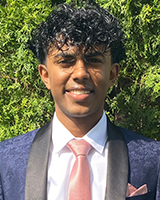
Ahastan Surees (2021-2025)
Markham, ON
Ahastan is a second-year Arts & Science (BASc) student at McMaster University. Since a young age, he has always been captivated by the field and study of medicine, healthcare, and research, often finding himself getting carried away in conversations regarding youth health. For the three years he has been on the Youth Advisory Council, he learned about many new topics, explored new passions, and embedded others' perspectives into his own. He is a firm believer in the importance of youth becoming more involved in their community and for youth to educate themselves on policies, issues and determinants that concern youth across the country. By joining this council, Ahastan strives to be a voice for the Canadian Tamil youth community as well as an advocate for mental health in youth as the co-founder of the Mellness Kids Crew initiative.

Maxine Joly-Chevrier (2023-2025)
Montréal, QC
Maxine is a fourth-year medical student at the University of Montreal with a deep interest in medical research, community engagement, and emerging technologies that transform patient care. She is the founder and president of "Et si on se racontait?", an intergenerational initiative developed in partnership with Contact Aînés. The program connects seniors and youth through phone conversations that are later compiled into a published book each year, celebrating shared stories across generations.
Maxine also volunteers with Kids Help Phone as a former member of the National Youth Council and serves as president and co-founder of the University of Montreal’s Digital Health Interest Group, where she promotes innovation at the intersection of medicine and technology.
2024
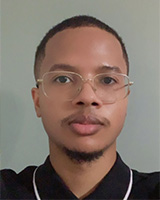
Robert Chin-See (2022-2024)
Brampton, ON
Robert recently graduated from Wilfrid Laurier University with an excellence award in Honours Health Sciences. Currently, Robert is studying as a Masters student in the Health Sciences program at Wilfrid Laurier University under the supervision of Dr. Todd Coleman on a quantitative study concerning health systems and marginalized populations. Robert hopes to pursue an academic position and community role that allows him to bridge quantitative and qualitative research with meaningful community action and believes IHDCYH's Youth Advisory Council represents a crucial junction to engage other unique perspectives in the discussions about the future of Canadian healthcare research and delivery for youth and families. By serving on the council Robert hopes to advocate for the sovereignty and access of historically disenfranchised communities, including racialized 2SLGBT+ individuals, and frame it within public health for future health research. There is ample opportunity to focus on how vulnerable youth can shape the direction of healthcare research in Canada and instill meaningful change.

Jolie Gan (2022-2024)
Calgary, AB
Jolie is a three-time non-profit founder, UN youth delegate, and health equity advocate. She is also a child cancer survivor, and has lived experience as a youth in care. She is part of multiple Asian ethnic minorities and brings an international focus to the council, having observed the healthcare systems of six different countries. She is always looking to leverage opportunities to improve health and healthcare for the most vulnerable. Jolie has participated in the United Nations General Assembly Youth Delegate Programme, and served on the Alberta Health Services’ Child and Youth Advisory Council. She received a Women of Inspiration™ Rising Leader award from the Universal Women’s Network in 2020, as well as the Diana Award in 2021, a prestigious international award for young people doing social work.

Vivek Gill (2020-2024)
Vancouver, BC
Vivek is a medical student at the University of British Columbia and an aspiring clinician-scientist with a particular interest in child and maternal health. Over his years on this council, Vivek has served as a youth advocate on the Inspiring Healthy Futures Executive Team, an emcee for the Healthy Youth Summit, and in several other leadership roles, enabling him to engage with diverse stakeholders and decision-makers across Canada. He is passionate about equity, diversity, inclusion, decolonization, and accessibility in health research, and is eager to create meaningful change within the Canadian healthcare system and health research ecosystem.
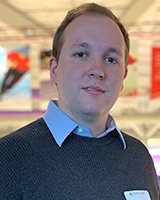
Ash Kolstad (2020-2024)
Calgary, AB
Having suffered a life-altering concussion, Ash sees the extreme value in the IHDCYH's Youth Advisory Council to provide the youth perspective for Canadian health research. Through his membership, Ash hopes to learn more about Canadian policy and increase awareness of health problems facing youth in an effort to promote healthy lifestyles. Ash is currently completing a Doctor of Philosophy degree in the Sport Injury Prevention Research Centre at the University of Calgary to further understand concussion prevention in youth sport. He acknowledges funding for his degree from the CIHR Frederick Banting and Charles Best Doctoral Scholarship, the University of Calgary’s Eyes High Doctoral Recruitment Scholarship, and the Izaak Walton Killam Memorial Scholarship.

Alexandria Martin (2020-2024)
Winnipeg, MB
Alexandria is pursuing a Bachelor of Science (Honours) in Biological Sciences at the University of Manitoba while working as a student researcher in the Department of Biochemistry and Medical Genetics and at the Children's Hospital Research Institute of Manitoba. She has also continued to volunteer at the Health Sciences Centre and Women’s Health Clinic throughout her studies. She is thrilled to be a part of the IHDCYH Youth Advisory Council as it will provide her with the opportunity to actively participate in shaping health-related research, policy, and concerns affecting youth with a group of other knowledgeable individuals. Through her involvement with the council, Alexandria aims to continue gaining different viewpoints on healthcare issues that are currently important to young Canadians.

Sarah Mooney (2020-2024)
Edmonton, AB
Sarah is a third-year BScN student at Grant MacEwan University. In 2022, she completed the Patient and Community Engaged Research (PaCER) program at the University of Calgary. Living with chronic health conditions, Sarah became passionate about healthcare delivery, policy, and research early on. Currently, she works and volunteers in the research areas of Pediatric to Adult Healthcare Transitions, Pediatric Medical Traumatic Stress, and Pediatric Inpatient QI. While on the council, Sarah thoroughly enjoyed contributing her lived experiences to advise on various aspects of IHDCYH, policies, and priority setting and development. She looks forward to watching the YAC continue to grow and flourish with future cohorts.

Eki Okungbowa (2020-2024)
Toronto, ON
Eki earned a master’s degree in educational psychology from the University of Alberta. Prior to joining the IHDCYH Youth Advisory Council, she served as the Youth Representative for Justice Canada's Advisory Group on Family Justice. Eki views the IHDCYH Youth Advisory Council as an opportunity to include more youth perspectives in government policy. Through her membership on this council, she is committed to advocating for multifaceted and community-based approaches to address health and well-being needs of vulnerable families, children, and youth.

Annika Waschke (2020-2024)
Montreal, QC
Annika is incredibly passionate about health care, including the potential of technology to improve access and services for communities who may be underrepresented in the current health research domain. She currently lives in Montreal, Quebec and is a student at Marianopolis College in the Health Sciences program. She hopes to gain insight into the world of Canadian health research and is eager to collaborate with her new fellow council members.
2023
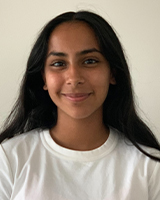
Malvina Chhina (2021-2023)
Vancouver, BC
Malvina is currently a high school student at Sir Winston Churchill Secondary School, in Vancouver BC. As a member of the IHDCYH Youth Advisory Council, she brings with her the perspective and lived experiences of a first generation Canadian, as well as a youth growing up as part of a visible minority. She is a passionate and firm believer in equitable and accessible healthcare for all, and especially underrepresented communities such as First Nations.
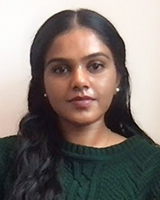
Midhula Madhu (2021-2023)
Whitehorse, Yukon Territory
Midhula holds a master's in counselling psychology from the University of Ottawa, where she did her thesis on cultivating self-compassion among healthcare trainees. She currently works for Yukon's Community Corrections. She has previous experience working as a respite worker and as a counsellor for youth with different mental health challenges. By joining IHDCYH’s youth advisory council, she has been able to share her insights and ideas on health research and learn more about child and youth health research and policy development. She brings a holistic view of health and health promotion to explore the different gaps in health research. Midhula is excited to be part of this council. She sees this as an opportunity to learn more about the wellbeing needs of youth and children in different parts of Canada through her fellow council members.
2022
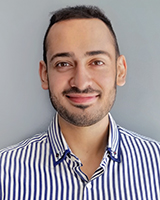
Wajih Jawhar (2020-2022)
Montreal, QC
Originally from Beirut, Lebanon, Wajih graduated from McGill with an excellence award in Human Genetics. He is currently a research assistant at the Research Institute of the McGill University Health Centre (RI-MUHC). Aiming to develop new therapies for patients with pediatric disease, Wajih focuses his efforts on deciphering genetic and epigenetic events involved in cancer initiation, progression, and drug resistance. He is interested in bridging theoretical and practical aspects of education with the goal of attaining a comprehensive understanding and application of science. As a youth advocate, Wajih joined IHDCYH's council to foster meaningful partnerships and learn more about health research policy as a prospective pediatric cancer researcher.
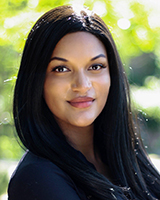
Danica Matthews (2020-2022)
Saskatoon, SK
Danica is a graduate of the University of Victoria's Bachelor of Social Work Program, and currently works in a child protection setting in rural Saskatchewan. She has several years’ experience working with children in both education and youth intervention settings, and she is passionate about youth and maternal health. Joining IHDCYH's youth advisory council is important to Danica, as she feels that youth are the future of Canada and should be present to discuss the critical topics affecting youth today. Danica looks forward to collaborating with many different individuals and institutions!
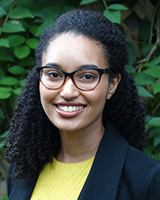
Danielle Nadin (2020-2022)
Montreal, QC
Danielle graduated with a Master’s in Neuroscience from McGill University, where she studied brain network correlates of consciousness in brain injured patients. Danielle now wears many hats, all of which allow her to advocate for more inclusive spaces in science and health research. As Co-Director of SciComm Collective, Danielle develops resources to teach researchers to communicate their science in a way that integrates principles of equity, diversity, inclusion, and social justice. Danielle is also the Director of Finance for Black In Neuro, a global initiative which connects, celebrates and supports Black scholars studying the brain. Since January 2021, Danielle has served as Science Strategy Lead at the CIHR Institute of Gender and Health. The IHDCYH youth advisory council will provide a platform for diverse voices to get involved in health research that concerns them, from the earliest stages of decision-making. Through this experience, Danielle hopes to work towards more equitable, intersectional approaches to health research and science communication in Canada.

Brett Recollet (2020-2022)
Sudbury, ON
Brett is a permanent part-time Indigenous Support Worker for the Rainbow District School Board in Sudbury and is enrolled in the Bachelor of Social Work program at Laurentian. He is serving his fifth term as a youth member for the Ontario Centre of Excellence for Child and Youth Mental Health. Brett aims to bring his voice to advocate about health and research in Canada for those who cannot for themselves. Brett is excited to be a part of this diverse group of youth, to listen to what his fellow council members have to say and to share his own thoughts and experiences as well.
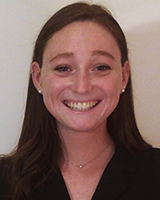
Sarah Schwartz (2020-2022)
Kingston, ON
Sarah was diagnosed with juvenile rheumatoid arthritis at the age of eleven, and is now a first year medical student at Queens University. She completed her Master of Science at Dalhousie University in June 2021, studying immunotherapy in lung cancer treatment. Through her own patient perspective and having spent four years working at Brigadoon Village, an overnight camp for children with chronic illnesses, she understands how important and valued each patient's unique experience is within the healthcare system. As a member of this council, she hopes to advocate for those unique needs that result from receiving a chronic illness diagnosis at a young age.

Vivian Tsang (2020-2022)
Vancouver, BC
Vivian leads the National KidsCan Initiative, a young persons' research advisory group in Canada as a part of the Maternal Infant Child and Youth Research Network. She studies medicine at the University of British Columbia. Vivian is dedicated to improving healthcare access for vulnerable population groups and is excited to push forward Canadian research priorities as part of the IHDCYH.
- Date modified: